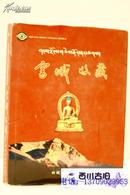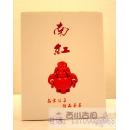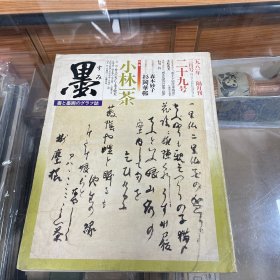
Ideas And Opinions Albert Einstein
¥ 80 九品
仅1件
四川成都
认证卖家担保交易快速发货售后保障
作者Albert Einstein
出版社Random House Value Publishing
印刷时间1982
装帧精装
货号7-3
上书时间2022-05-05
- 在售商品 暂无
- 平均发货时间 8小时
- 好评率 暂无
- 店主推荐
- 最新上架
商品详情
- 品相描述:九品
图书标准信息
- 作者 Albert Einstein
- 出版社 Random House Value Publishing
- ISBN 9780517003930
- 定价 5.99元
- 装帧 精装
- 开本 其他
- 纸张 其他
- 【内容简介】
- IDEAS AND OPINIONS contains essays by eminent scientist Albert Einstein on subjects ranging from atomic energy, relativity, and religion to human rights, government, and economics. Previously published articles, speeches, and letters are gathered here to
- 【作者简介】
-
Albert Einstein is undoubtedly one of the most fascinating and influential figures of the modern era. As a preeminent physicist, he radically transformed our understanding of the universe. As an ardent humanist, he took an active and outspoken stance on the significant political and social issues of his time. As a committed Jew, he advocated a distinctive moral role for the Jewish people.
Albert Einstein's contribution to modern physics is simply unique. His scientific career was a constant quest for the universal and immutable laws, which govern the physical world. His theories spanned the fundamental questions of nature, from the very large to the very small, from the cosmos to sub-atomic particles. He overturned the established concepts of time and space, energy and matter. Einstein played a crucial role in establishing the two pillars of 20th century physics: he was the father of the theory of relativity and a major contributor to quantum theory.
Einstein was a theoretical physicist - his only concrete tools being pencil and paper. It has been said that his true tools were a penetrating and intuitive grasp of the workings of the natural world and the "thought experiment" - an intellectual exercise used by physicists to reach a theoretical conclusion from idealized physical processes. Yet, Einstein was not a purely abstract thinker. He grasped the world in concrete images and strove to translate them into words and equations that could be understood by others.
Science was Albert Einstein's first love, yet he always found time to devote tireless efforts to political causes close to his heart. His ardent humanism led him to strive for peace, freedom and social justice. The young Einstein found the authoritarianism and militarism of the German educational system profoundly disturbing. The virulent nationalism and brutality of the First World War served to confirm Einstein's pacifist and internationalist convictions.
In the 1920s, Einstein became an active leader of the international anti-war movement and supported conscientious objection. However, the Nazi rise to power brought about a substantial change in Einstein's position: he began to advocate military preparedness by the European democracies against the threat of Nazism. In this context, Einstein wrote his famous letter to U.S. President Roosevelt in which he urged him to initiate an American nuclear research programme. With the onset of the atomic era, Einstein realized that nuclear weapons were a profound risk to humanity and could bring an end to civilization. During the last decade of his life, he was tireless in his efforts to create effective international cooperation to prevent war.
Throughout his life, Albert Einstein felt a close affinity with the Jewish people. Einstein defined Judaism as a culture with a shared historical past and common ethical values rather than as an institutionalized religion. For him the main values of Judaism were intellectual aspiration and the pursuit of social justice. Like Spinoza, he did not believe in a personal god, but that the divine reveals itself in the physical world. Einstein supported the creation of a homeland for the Jews in Palestine. However, he stipulated that any solution of the Arab-Jewish conflict had to be based on mutual understanding and consent.
Albert Einstein was one of the founders of the Hebrew University of Jerusalem. He served on the University's first Board of Governors and Academic Council. He delivered the University's inaugural scientific lecture and edited its first collection of scientific papers. His unique relationship to this institution found a lasting expression in the bequest of his literary estate and personal papers to the Hebrew University in his Last Will and Testament.
点击展开
点击收起
— 没有更多了 —



















以下为对购买帮助不大的评价